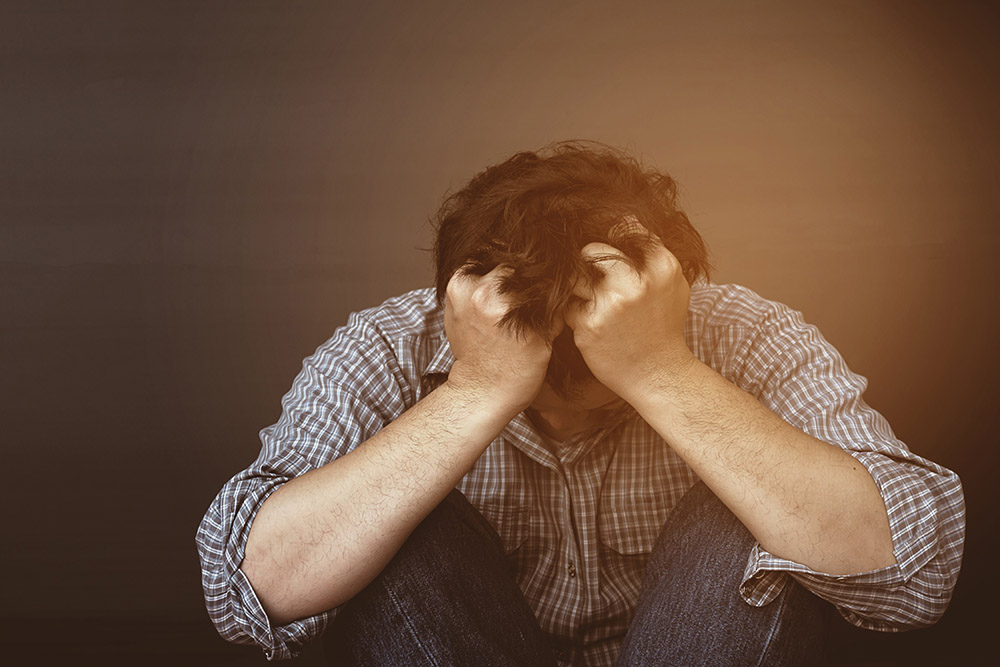Our society presents a conundrum when it comes to gender roles and mental health. Centuries of perpetuating particular ‘responsibilities’ ‘ways of behaving’ and ‘different styles of upbringing’ has created obstacles for people to seek help for their mental fitness. During our childhood we were constantly hearing of instances where boys were told to stay strong for the sake of their family, show no emotions, ‘man up’ in the face of a risky situation. These boys have transformed into men who may have difficulty in regulating their emotions, feel overwhelmed in times of expressing emotions and may also become insensitive beings. While individuals identifying as males were being taught to be tough, they were losing their ability to learn how to ask for help. Their role consisted of not only being strictly self-reliant but also protecting everyone around them.
Men are now faced with several ordeals regarding their mental health. The scrutinising gaze of society on males who reveal their sorrow or show signs of weakness have hindered this gender from discovering healthy ways to take care of their mental well being.
“Men struggle more to accept the fact that they have a mental health issue and that they need help. The complex gender dynamics, especially stereotypes, of our society makes them consider seeking help for better mental health contrary to the concept of being strong and becoming unsuitable for the role of a provider,” said Prakriti Poddar, Global Head for mental health at Round Glass, MD at Poddar Foundation.
We would like to share with you a few statistics taken from different studies ranging from 2018 – 2021, reporting the experiences of men and their mental health. According to the Australian Men’s Health Forum, Men are more than twice as likely as women to have experienced substance use disorders (7.0% compared with 3.3%) and Men are more likely to experience mental disorders in all three categories (anxiety, depression and alcohol abuse) than women (0.8% compared with 0.6%). Suicide among males is 4 times higher than among females and male deaths represent 79% of all US suicides, reported by the Centers for Disease Control and Prevention. Suicide rates among men have increased over the past decade from 17.5 in 2010 to 19.8 in 2019, recorded by Suicide Prevention Australia. In India, the overall male to female ratio of suicide victims was 70.9 to 29.1 (2021, National Crime Records Bureau).
These few statistics show that suffering in silence is not a safe or healthy option for the men in our lives. Gender and culture have intertwined to create a toxic web for men who are trying to establish a stable relationship with their emotions. Famous male personalities from various fields have voiced their opinions about their own battles with depression, anxiety and trauma, including Prince Harry, Trevor Noah, Zayn Malik, Oscar De La Hoya, Michael Phelps and Pete Davidson. These individuals have sparked important conversations throughout the world in support of seeking help, being vulnerable and opening up about one’s mental health.
We must collectively tackle this unfair environment created for men. Educating EVERYONE from a young age about mental well being, self-care and beneficial ways to express emotions such as crying can be helpful in creating a strong foundation of learning how and when to ask for help. By changing the narrative and erasing the social stigma related to mental health issues, men will feel more safe and comfortable.
Creating awareness about the obstacles faced by the male gender is not enough. Simultaneously we should change traditional concepts about how help-seeking is perceived. Rather than a sign of weakness, and therefore something to avoid, we ought to flip things around positioning help-seeking as a show of strength, involving taking back control of one’s situation and improving one’s life by getting things back on track (2020, Hans).
In a recent article by ImPerfect titled ‘Language and Mental Health’ we elaborated on the importance of not using stigmatising terms that cause shame, minimise experiences and misrepresent reality. ‘Crying is not for men’, ‘Real men do not need to ask for help’, ‘Stop being so sensitive men should always be tough’ – the problem starts with such phrases, which forces men to mask their emotions, bury their need to open up about their internal turmoils and always wear a facade of ‘manliness’.
In reality, men can cry, experience depression, anxiety, feel insecure or be sensitive. Expressing weakness or strength, happiness or sadness and mental wellness or illness is not reserved for a particular gender. These conditions are attributed to being human. Heartfelt words by Wayne Brady an actor, comedian, and TV personality in a PSA campaign for Bring Change 2 Mind, will encapsulate this article’s focus, “It’s difficult for men in general, I think, because of just the way that we’re raised…We feel any of the negative emotions or that dark cloud settle on you, and you feel like you need to cry out or speak to someone about it, and ‘Nope, I’m not gonna do that, because I’m a man,”… That’s what you’re taught. That’s how you were programmed. And that’s what kills us.”
Bring Change 2 Mind is a non-profit organisation dedicated to erasing the stigma surrounding mental illness. In a new campaign, #StrongerThanStigma, the organisation aims to encourage men, in particular, to normalise conversations about mental health. Let us pledge to use our voice in support of everyone’s mental health, including men and steer away from the stereotypes that label this gender with only words such as strong, powerful and aggressive. Instead, we can create an environment where men feel secure to be sensitive, emotional, sad and most importantly ask for help, proudly, with no hesitation.
– Urveez Kakalia and Ferangiz Hozdar.

